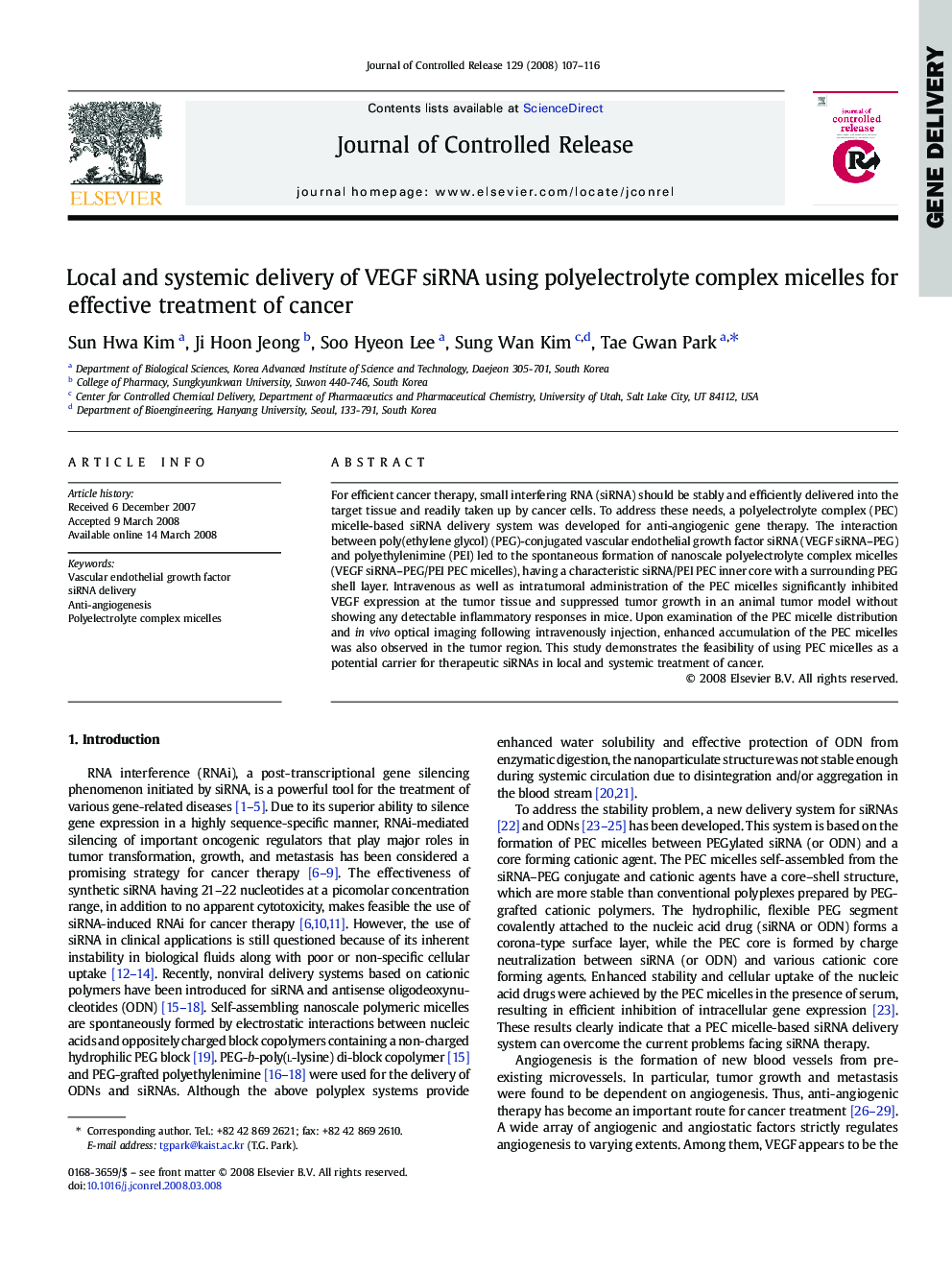| Article ID | Journal | Published Year | Pages | File Type |
|---|---|---|---|---|
| 1426912 | Journal of Controlled Release | 2008 | 10 Pages |
For efficient cancer therapy, small interfering RNA (siRNA) should be stably and efficiently delivered into the target tissue and readily taken up by cancer cells. To address these needs, a polyelectrolyte complex (PEC) micelle-based siRNA delivery system was developed for anti-angiogenic gene therapy. The interaction between poly(ethylene glycol) (PEG)-conjugated vascular endothelial growth factor siRNA (VEGF siRNA–PEG) and polyethylenimine (PEI) led to the spontaneous formation of nanoscale polyelectrolyte complex micelles (VEGF siRNA–PEG/PEI PEC micelles), having a characteristic siRNA/PEI PEC inner core with a surrounding PEG shell layer. Intravenous as well as intratumoral administration of the PEC micelles significantly inhibited VEGF expression at the tumor tissue and suppressed tumor growth in an animal tumor model without showing any detectable inflammatory responses in mice. Upon examination of the PEC micelle distribution and in vivo optical imaging following intravenously injection, enhanced accumulation of the PEC micelles was also observed in the tumor region. This study demonstrates the feasibility of using PEC micelles as a potential carrier for therapeutic siRNAs in local and systemic treatment of cancer.
